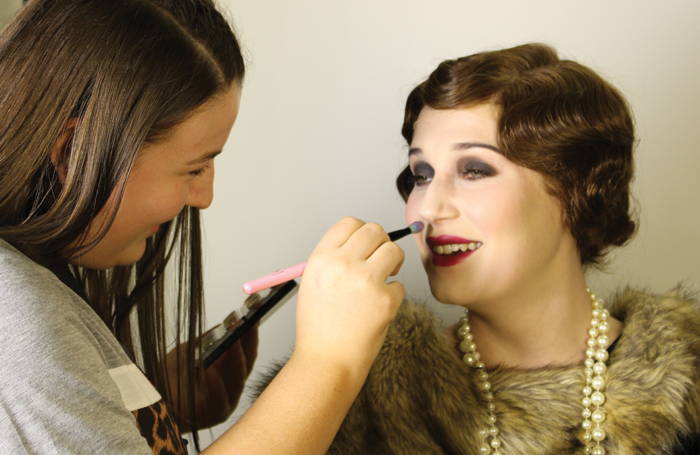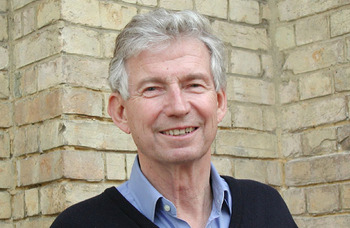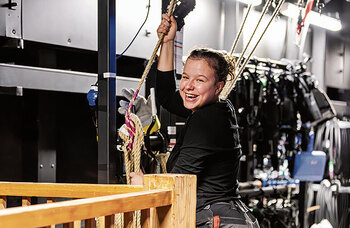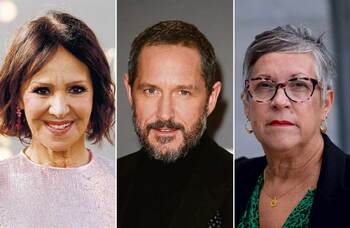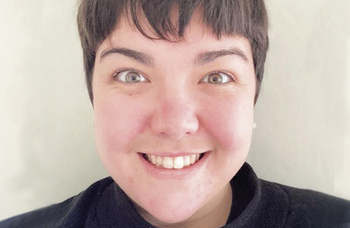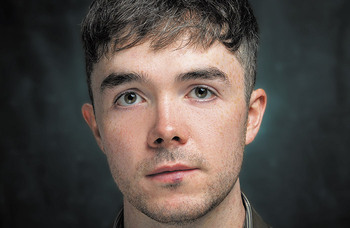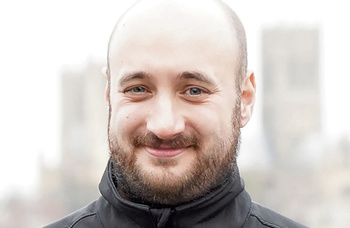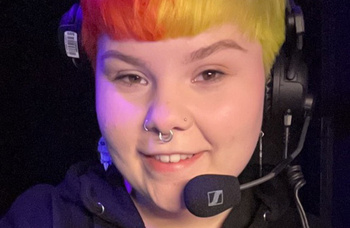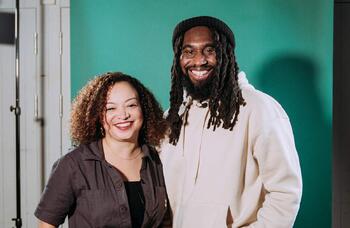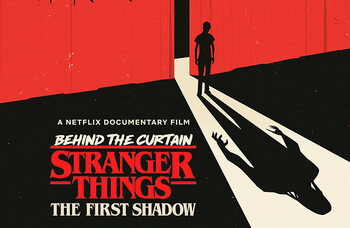Building foundations: the best training routes for getting into hair and make-up for stage and screen
With advances in lighting and more televised performances, make-up, hair and wig training is more important than ever. Paul Vale looks at what is available and the best routes into the industry
One of the best things about wanting to train in make-up and wigs for performance is that there are plenty of excellent accredited courses across the UK and beyond.
But, firstly, it is worth stressing that if you are planning on working solely in theatre, then your options for employment may be limited. With the advances in lighting and productions being regularly filmed, old-school make-up techniques are a thing of the past. Artists need to be multi-skilled, most importantly in hair and wig techniques but also at casualty simulation, prosthetic application and removal, and HD make-up to carve a lasting career in the industry. If you want to work in film then you can add, among other skills, digital and retouching to the list.
London
If you’re looking to train in London then it’s worth checking out courses at the London College of Fashion, which has for a long time provided the only training to degree level. If you are looking for a great, all-encompassing training in a university environment then its three-year BA (hons) hair, make-up and prosthetics for performance is probably for you. LCF has a great international reputation and is based in the heart of London.
Kingston College offers the level 3 hair, make-up and prosthetics for media, editorial and fashion, a year-long course where students are encouraged to explore their creative potential in special effects make-up, making and using prosthetics, air-brushing techniques and fantasy hair design. Similar options are available at the West Thames College in Isleworth, plus a wealth of diverse training in hair and media make-up training. There are also higher national diploma courses in specialist make-up plus training geared specifically for 16-18 year olds in theatrical make-up.
If you are looking for short, private courses, then there are plenty of other options. These are some of the schools and colleges that offer a variety of intensive training with an emphasis on practical skills: the Delamar Academy has a superior reputation. Its complete make-up artist course, an intensive course lasting four months, covers all the essential skills of make-up and hair, from beauty and fashion to period wigs and Hollywood hair. It is particularly suitable for those wishing to change their career or for those passionate about using make-up in a creative environment. The Brushstroke Make-up and Hair School based at Shepperton Studios also has an excellent reputation offering BTEec and ITEC diplomas in hair and make-up for the stage and screen. Its studio setting also houses the largest make-up and hair training facilities in the UK.
 Outside of London
Outside of London
There are plenty of options for courses outside the capital. The Arts University Bournemouth has a growing reputation in arts, media and fashion and it now offers a BA (hons) make-up for media and performance. It prepares graduates to play a vital role in the production team as they work with fellow students who are studying acting, film production, costume and fashion to create ‘live’ collaborative projects.
The University Centre Somerset offers a foundation degree in media make-up, which is a two-year, full-time practical course that can be topped up with an extra year to a BA (hons) in media make-up awarded by the Open University.
Practical foundation courses are also available at Leicester College and Edinburgh College, while the University of Bolton offers a wealth of courses including the BDes (hons) special make-up effects for film and TV. This is a three-year course that focuses not only on practical skills, but also transferable skills such as communication, project and time management, team-working and entrepreneurship, which will prove vital in this largely freelance profession. Each of these hold regular open days, where you can get a feel for the college.
Alternatively you might consider attending one of the two major trade shows that take place in London during the year. The International Make-up Artist Trade Show is a huge event, that brings together artists from different fields – film, television and theatre. It’s not only a great place to network and chat to professionals in the industry, but several colleges also exhibit there. You can chat to students and lecturers about courses and get a feel for the diversity of options available to make-up artists in the UK and overseas. The United Make-up Artist Expo offers a similar experience on a smaller scale but both events feature demonstrations, lectures and give a sense of the possibilities of a career in hair and make-up.
If you are keen to train in a working environment there are very few apprenticeship options open to young people today. But there are some at the National Theatre. Since the NT began the scheme three years ago, it has been deemed a great success and the company is planning on repeating it in the near future. The successful applicant learns hairdressing and wig-making, prosthetics, onstage effects and cosmetic make-up skills alongside professionals working on NT productions. You will also learn about the vital role collaboration and communication play in the creative design process and how to work closely with people under pressure in a time-sensitive environment.
The joy, however, is that you can start investigating practical training straight away. There are plenty of books, DVDs and digital guides online and amateur theatre companies are always on the look-out for hair and make-up volunteers. Always photograph your work and build up a portfolio ready to show your prospective tutor, as they will want to see your passion for the subject.
The IMATS runs at London’s Olympia from May 18-May 20, while the UMAE runs from October 13-October 14 at the Hotel Novotel London West
Opinion
Recommended for you
Advice
Recommended for you
Most Read
Across The Stage this weekYour subscription helps ensure our journalism can continue
Invest in The Stage today with a subscription starting at just £7.99
 Paul Vale
Paul Vale